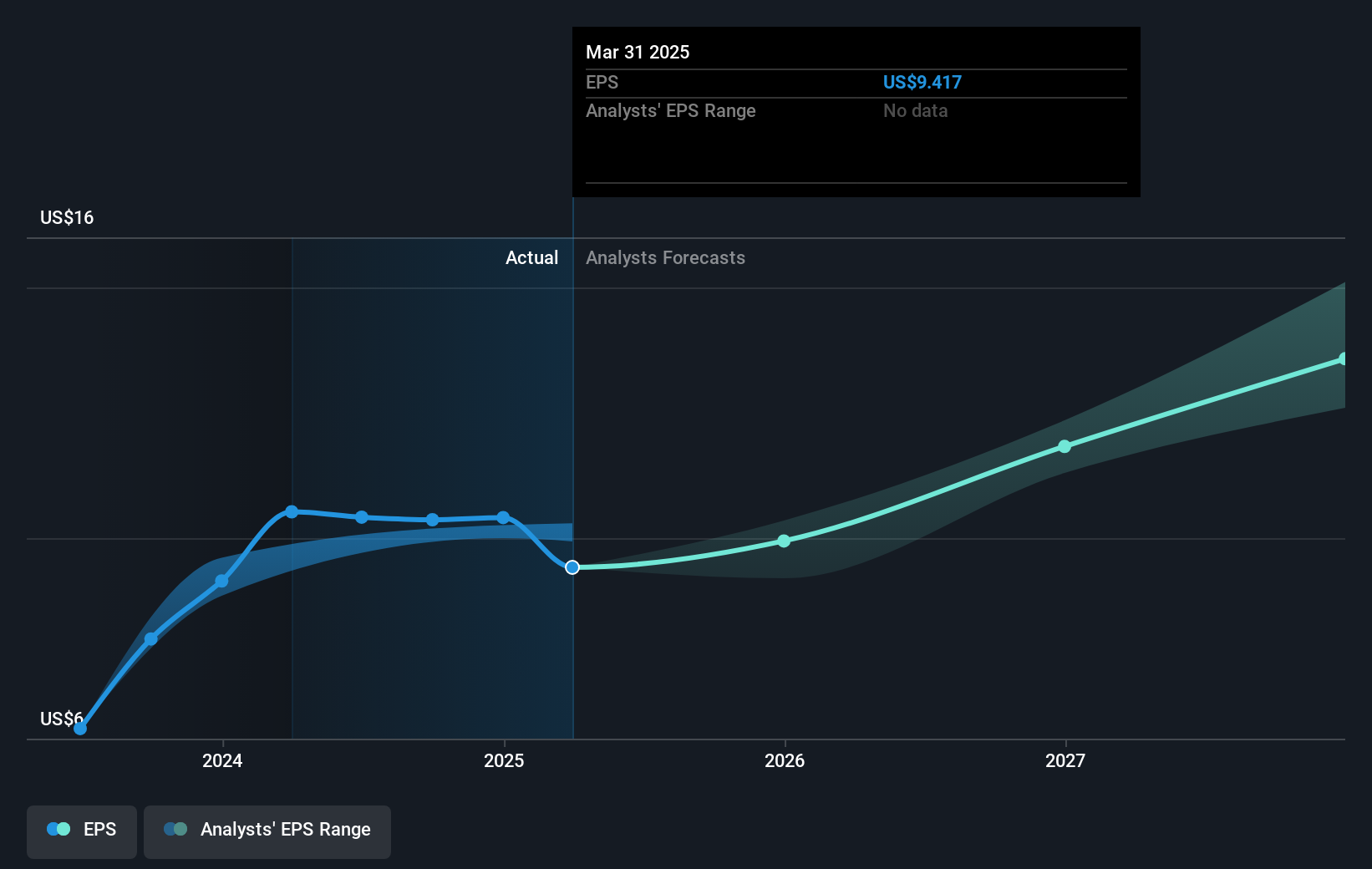- United States
- /
- Machinery
- /
- NYSE:OSK
Investors in Oshkosh (NYSE:OSK) have seen decent returns of 70% over the past five years

The main point of investing for the long term is to make money. Furthermore, you'd generally like to see the share price rise faster than the market. But Oshkosh Corporation (NYSE:OSK) has fallen short of that second goal, with a share price rise of 57% over five years, which is below the market return. Over the last twelve months the stock price has risen a very respectable 7.6%.
So let's investigate and see if the longer term performance of the company has been in line with the underlying business' progress.
There is no denying that markets are sometimes efficient, but prices do not always reflect underlying business performance. One imperfect but simple way to consider how the market perception of a company has shifted is to compare the change in the earnings per share (EPS) with the share price movement.
During five years of share price growth, Oshkosh achieved compound earnings per share (EPS) growth of 6.1% per year. This EPS growth is slower than the share price growth of 9% per year, over the same period. So it's fair to assume the market has a higher opinion of the business than it did five years ago. And that's hardly shocking given the track record of growth.
The graphic below depicts how EPS has changed over time (unveil the exact values by clicking on the image).

This free interactive report on Oshkosh's earnings, revenue and cash flow is a great place to start, if you want to investigate the stock further.
What About Dividends?
As well as measuring the share price return, investors should also consider the total shareholder return (TSR). Whereas the share price return only reflects the change in the share price, the TSR includes the value of dividends (assuming they were reinvested) and the benefit of any discounted capital raising or spin-off. Arguably, the TSR gives a more comprehensive picture of the return generated by a stock. As it happens, Oshkosh's TSR for the last 5 years was 70%, which exceeds the share price return mentioned earlier. This is largely a result of its dividend payments!
A Different Perspective
Oshkosh provided a TSR of 9.6% over the last twelve months. But that was short of the market average. On the bright side, the longer term returns (running at about 11% a year, over half a decade) look better. It's quite possible the business continues to execute with prowess, even as the share price gains are slowing. Is Oshkosh cheap compared to other companies? These 3 valuation measures might help you decide.
If you would prefer to check out another company -- one with potentially superior financials -- then do not miss this free list of companies that have proven they can grow earnings.
Please note, the market returns quoted in this article reflect the market weighted average returns of stocks that currently trade on American exchanges.
New: AI Stock Screener & Alerts
Our new AI Stock Screener scans the market every day to uncover opportunities.
• Dividend Powerhouses (3%+ Yield)
• Undervalued Small Caps with Insider Buying
• High growth Tech and AI Companies
Or build your own from over 50 metrics.
Have feedback on this article? Concerned about the content? Get in touch with us directly. Alternatively, email editorial-team (at) simplywallst.com.
This article by Simply Wall St is general in nature. We provide commentary based on historical data and analyst forecasts only using an unbiased methodology and our articles are not intended to be financial advice. It does not constitute a recommendation to buy or sell any stock, and does not take account of your objectives, or your financial situation. We aim to bring you long-term focused analysis driven by fundamental data. Note that our analysis may not factor in the latest price-sensitive company announcements or qualitative material. Simply Wall St has no position in any stocks mentioned.
About NYSE:OSK
Undervalued with excellent balance sheet and pays a dividend.
Similar Companies
Market Insights
Community Narratives



